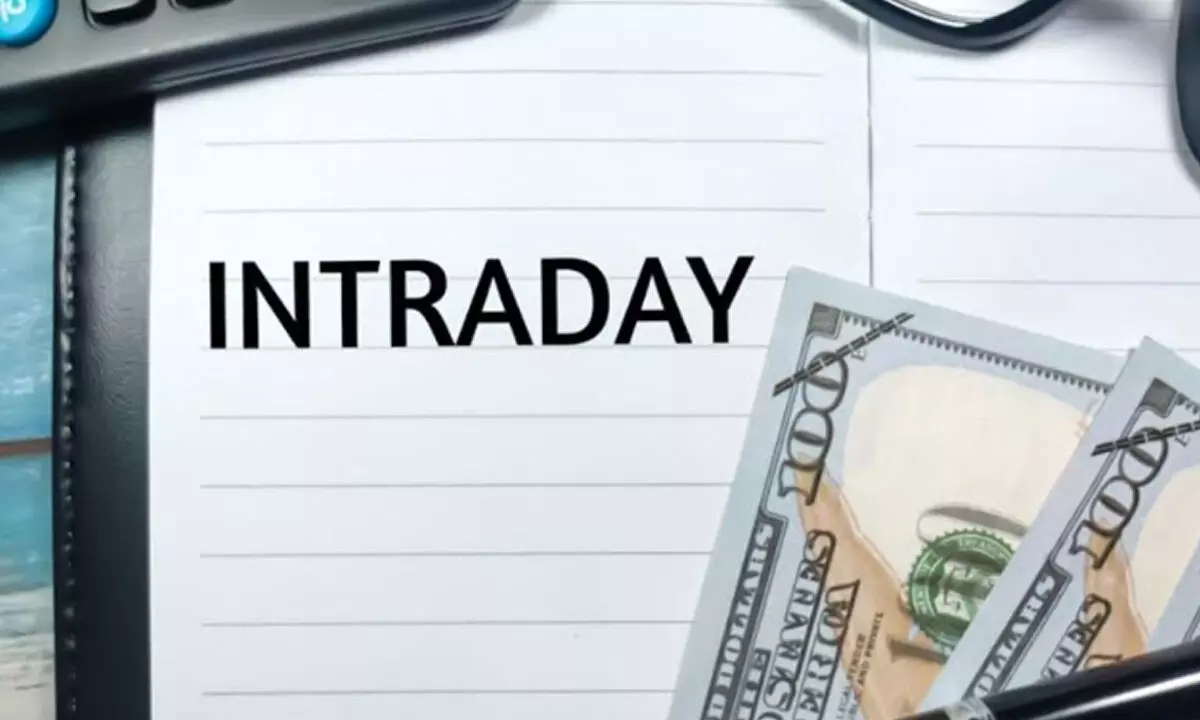7 intraday trading mistakes that are costing you money

Intraday trading involves buying and selling financial instruments within the same trading day, with the goal of profiting from short-term price movements
Intraday trading involves buying and selling financial instruments within the same trading day, with the goal of profiting from short-term price movements. Traders open and close positions within a single session, not holding them overnight. It requires sufficient capital to trade with leverage, as well as the ability to monitor markets closely and act quickly on opportunities. Income earned from intraday trading depends on many factors, like capital, leverage, and trading skills. While risky, intraday trading can be very lucrative for disciplined traders who employ tight risk management.
Intraday trading can be an exciting yet risky endeavor. While the potential for quick profits is alluring, the fast-paced nature of intraday trading also amplifies risks. Even experienced traders can fall prey to common mistakes that result in losses. On that note, here are 7 intraday trading mistakes that you must avoid.
Trading without a plan
One of the most crucial intraday trading rules is having a well-defined trading plan Without a plan, you are essentially gambling and leaving outcomes to chance. A trading plan outlines your risk appetite, position sizing, entry and exit rules, profit targets, and stop losses. It provides structure and guidelines to make rational decisions amidst the chaos of the markets. Trading without a plan leads to impulsive and emotionally driven actions that often end badly. You must have a plan for every trade and stick to it diligently.
Overleveraging
Intraday trading requires margin trading, but new traders often get carried away and overleverage. Just because your broker offers 5x or 10x leverage doesn't mean you should max it out. Overleveraging magnifies both profits and losses. Even a small adverse move can wipe out your entire capital if you are overleveraged. As a rule of thumb, use only 2-3x of your capital per trade. This will allow you to withstand some drawdowns while lowering overall risk exposure.
Trading illiquid stocks
Many new traders get attracted to low-priced, illiquid penny stocks for their intraday trading. However, low liquidity makes exiting positions difficult when the tide turns against you. With wider bid-ask spreads and uncertain fill prices, illiquid stocks can turn a profitable trade into a loss in seconds. Stick to shares of large-cap companies with ample trading volumes for reliable order execution and exit plans. Avoid thinly traded counters until you gain experience.
Ignoring stop losses
Placing stop-loss orders is a cardinal rule of prudent trading. By capping downside, stop losses prevent catastrophic losses when the markets turn against you. However, greed or overconfidence often tempts traders into ignoring stop losses. This is a recipe for disaster in fast-moving intraday markets. No matter how confident you feel about a trade, always use a stop loss. Don't try to predict tops and bottoms. Let the stop loss automatically get you out before excessive damage is done.
Revenge trading after losses
Taking losses is part of trading. But new traders often struggle to accept losses. In an attempt to make up for losses in a single stroke, they enter reckless next trades with oversized positions. Such revenge trading is emotionally driven and has greater changes of ending badly. Accept small losses as the cost of doing business and avoid chasing losses. Take a break and enter the next trade with a fresh mindset and an appropriate position size.
Overtrading
When starting out, it's common for traders to feel like they are missing out on action by not having a position at all times during market hours. Such FOMO drives overtrading, where you end up taking trades back to back without rationale just for the sake of staying busy. Remember that not all market conditions are favorable for trading. It's perfectly fine to stay in cash when you don't see opportune setups. Don't force trades out of boredom and wait patiently for clear signals. Overtrading will only lead to portfolio erosion via compound losses.
Not tracking and reviewing trades
You must track each and every trade diligently and review all outcomes at the end of the day. Maintaining a trading journal is invaluable in this regard. By analyzing trade outcomes, patterns in profitability, mistakes, etc. you can continuously refine your process. New traders often do not spend enough time reviewing their trades. Without reviews, you end up repeating the same mistakes instead of learning and adapting. Make it a habit to record trades in detail and reflect on performance daily.
Conclusion
Avoiding these common mistakes will set you on the path to success in intraday trading. Establish smart practices like using stop losses, managing risk via position sizing, trading liquid instruments, and diligently reviewing every trade. Do not get swayed by greed or fear. Develop your skills with practice and perseverance. Keep calm even when losing and let your trading plan guide you. If you trade with discipline and prudent risk management, you can avoid costly mistakes and aim to achieve consistent profitability via intraday trading.
(No Hans India Journalist was involved in creation of this content)














